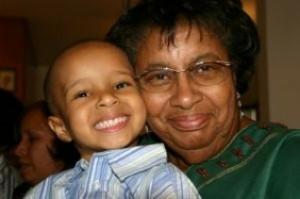All of us who have had breast cancer, or are living with metastatic breast cancer have endured the comments of well-meaning but insensitive people upon hearing of our diagnosis.
My favorite came from a woman at work after hearing about my second primary breast cancer. She said, “Your lucky you got it when you were older, and not when your son was young.” I tired to smile as I responded, “My heart goes out to young women, trying to cope with breast cancer while raising young children, and I am grateful that wasn’t my situation, but there is nothing lucky about getting breast cancer, at any age. There is no good time to get breast cancer.”
I was 55 when diagnosed with my first breast cancer and 66 with my second primary cancer. You don’t find many of us sharing our stories on social media networks, or in the press or television. We are rarely invited to speak at breast cancer functions. Many of us support breast cancer fundraising events and volunteer with breast cancer organizations, but usually behind the scenes.
Let’s take a look at the situations of many women who get breast cancer between the ages of 65 to 85 years of age.
 Who are they, these almost 96,000 women diagnosed annually with breast cancer?
Who are they, these almost 96,000 women diagnosed annually with breast cancer?

They have the second highest breast cancer rate annually; they are second only, and not by much, to women 55-64 years of age. They may be second in diagnostic numbers annually, but they are first in numbers of deaths from breast cancer than any other age group.
These women are diagnosed with many of the same breast cancers as their young counterparts, but often times do not receive the same treatment that their breast cancer warrants, and their physical health could tolerate. Assumptions are made about them that sometimes influences the treatment they are offered.
When diagnosed, what are their issues? What supports do they need to get through treatment?
Research on breast cancer and related issues, for this oft times silent population, while limited, documents the following findings:
By 65, some women are experiencing other medical conditions such as diabetes and heart disease that could impact on their treatment options.
Many women in this age group live alone, with their grown children often living a distance from them, making them unable to provide hands on care during breast cancer treatment. Meal prep, house cleaning, and daily emotional support become issues.
Transportation to and from treatment is often an issue often times resulting in missed treatments.
A fixed income and modest savings are often not enough to cover the cost of treatment, even when Medicare and supplemental insurance are both in place. The cost of chemo, radiation, and hormone therapy medications can wipe out a life time of savings.
Many in this age group come from a generation that did not talk openly about breast cancer, and find it difficult to share in support groups, even though they want and need the comfort and support of peers.
Many are silent because they accept a diagnosis of breast cancer as their lot in life, and consider themselves to be lucky not have gotten the disease earlier in life. This, regrettably, is sometimes said to them by well-meaning friends and family that are trying to give them something to make getting breast cancer more palatable.
It is sometimes assumed that women in their 60’s and 70’s will not want reconstruction, and this option is not always offered to them.
For many, participating in a support group online is not a comfortable option. They prefer one-on-one telephone conversations with fellow survivors.
Frequently, friends and fellow church members, if women belong to a church, are their support systems. However, friends are not always in a position to help out as they have their own medical problems.
What do women in the mostly silent group need:
Breast Cancer Awareness Presentations – Presentations in senior centers and church groups and other places where senior gathers given by breast cancer navigators, who are survivors, seniors themselves, and racially, culturally, and ethnically diverse dispelling the myths about cancer in this age group and linking seniors to low cost screenings to detect breast cancer at an early stage.
A Treatment Plan – A plan based on a woman’s overall health and not her age.
Access to Counseling – Counseling after diagnosis, during treatment, and into survivorship.
Access to Community Resources – Free to low cost community-based, support services that will enable a woman to continue to live independently during treatment.

